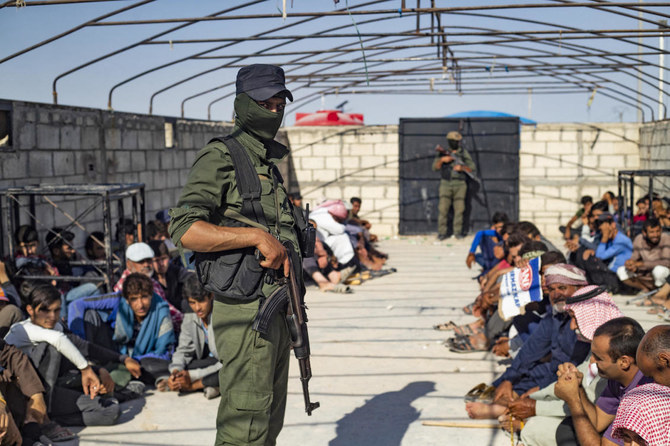BAGHDAD (AFP): Nearly 200 families have been repatriated to Iraq from Syria’s Al-Hol camp, home to about 50,000 people including family members of suspected extremists, an Iraqi official said Sunday.
An estimated 10,000 foreigners from about 60 nationalities, including relatives of suspected Daesh militants, are held in the squalid and overcrowded camp in Kurdish-controlled northeast Syria which also houses refugees.
The senior Iraqi security official, speaking on condition of anonymity, said “192 families, or 776 people” had returned to Iraq in the latest repatriation effort.
On Saturday, the Syrian Observatory for Human Rights monitor reported buses carrying Iraqi families had left Al-Hol, which is operated by the semi-autonomous Syrian Kurdish authorities.
Upon arrival in Iraq, authorities usually keep returnees from Al-Hol for weeks or even months at what officials describe as a “psychological rehabilitation” facility in Al-Jadaa, south of Mosul, where they also undergo security checks.
Iraq’s official news agency INA, citing national security adviser Qassem Al-Araji, said in early November that more than 1,500 Iraqi families had been transferred to Al-Jadaa.
Araji said that of that figure, some 900 families had been released and allowed to return home.
Repatriation of family members of suspected Daesh members has stirred controversy in Iraq, where the extremist group had seized large swathes of land before being defeated in late 2017.
The repatriation process has faced resistance from local populations who don’t want Daesh families among them.
Still, Baghdad regularly repatriates its citizens from Al-Hol, a policy commended by the United Nations as well as the United States.
Despite its territorial defeat, Daesh militants continue to conduct attacks against civilians and security forces in both Iraq and Syria.







